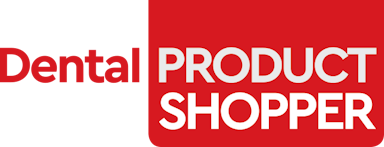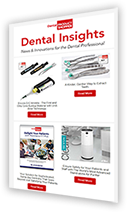Code Of Conduct
Dental Product Shopper Editorial Code of Conduct
As a publication that seeks to inform and engage our readers on dental products and industry news and topics, we value our relationship with our readers and have worked hard to earn their trust. We’ve established a high level of trust by providing accurate, credible and current information. The purpose of our Editorial Code of Conduct is to sustain that trust by articulating basic principles for the conduct of our editorial team.
Serving the Interests of the Reader
Editors should publish information that will enhance the practice of dentistry. Editors should acknowledge and correct mistakes quickly, publicly, and clearly. Editors should never permit commercial interests (e.g., advertisers) to influence or compromise editorial integrity.
General Editorial Ethics
Editors and writers (collectively, “Editors”) employed by Dental Product Shopper adhere to the highest standards of journalistic practice. In doing so, they pledge to:
- Maintain honesty, integrity, accuracy, thoroughness and fairness in the reporting and editing of articles, headlines, and graphics.
- Avoid all conflicts of interest as well as any appearances of such conflicts.
- Ensure that news stories are distinct in look, feel and proximity from advertisements.
- Accept as their primary responsibility the selection of editorial content based on readers’ needs and interests.
- Ensure that authors of articles make substantial contributions to the work, draft or revise the work, provide final approval
Independence of Editorial Team
We are committed to ensuring that the content developed by the editorial team is not altered or unduly influenced by any advertising relationships with customers, third parties, or owners. The editorial team has the authority over the editorial content and the timing of publication of that content. Customers, third parties or owners should not interfere in the evaluation, selection, scheduling, or editing of individual articles either directly or indirectly by creating an environment that strongly influences decisions. Editors should base editorial decisions on the validity of the work and its importance to the readers, not on the commercial implications for the publication, and editors should be free to express critical but responsible views about all aspects of dentistry without fear of retribution, even if these views conflict with the commercial goals of the publisher. We are committed to ensuring that the potential for advertising, reprint or other commercial revenue has no impact or influence on editorial decisions
Conflicts of Interest
- Editors (and their spouses and other immediate family members) should not invest in companies and/or industries they personally cover (this does not preclude investments in mutual funds, pensions or 401(k) plans that hold shares in a manner not directly controlled by the Editor). Investing on the basis of “inside information” may be a violation of securities laws and is prohibited by policy.
- If a conflict arises in an investment held by an Editor before his/her employment, or because of a merger or acquisition, he/she should immediately bring the conflict to the attention of his/her editorial management and should recuse themselves from editorial decisions.
- Conflicts of interest, including financial (such as employment, consultancies, stock ownership or options, honoraria, patents, and paid expert testimony) and personal relationships that could or appear to influence editorial coverage or may create or may appear as a conflict of interest, should be disclosed to the reader.
- When authors or peers submit content, they are responsible for publicly disclosing all relationships, interests (financial or otherwise) and activities that might bias their work or review, or could be perceived as a conflict of interest.
- Editors should not accept paid or freelance work from companies, associations or any other entity they cover.
Gifts, Meals & Activities
- Editors should not accept any gifts, favors or other items of value from companies or associations they cover, their public relations’ representatives or any other person or organization related to companies they cover that are designed to influence their judgment or have strings attached (no quid pro quo).
- Editors may accept infrequent and modest meals, refreshments or hospitality in the course of business dealings.
Differentiation of Editorial Content and Advertising
- Editors and publishers must take special care to visually distinguish between editorial content and advertising. The editorial content published in Dental Product Shopper is created and produced by the editorial team, which maintains full control and ownership of the content. Editorial content concerning advertisers and/or their products may be reviewed by advertisers prior to publication strictly for purposes of accuracy.
- Advertisements that mimic the “look and feel” of the print or digital publication’s editorial content may deceive readers and should be avoided. Print and digital advertisements should be clearly labeled as advertising (e.g., by the use of terms such as “Sponsor Content” or “Paid Post”) in compliance with Federal Trade Commission regulations.
- No product should receive editorial endorsement in exchange for payment. Product placement that indicates editorial endorsement should be avoided. Advertisements should not be integrated into editorial content. Editorial coverage of a person or product should not be intentionally positioned adjacent to advertising related to the same person or product.
- Sponsored links should be clearly labeled as advertising and visually separated from editorial content in compliance with the Federal Trade Commission publications.
Diversity and Inclusion
To improve academic culture, we seek to engage a broad and diverse array of authors, reviewers, editorial staff, and readers.


